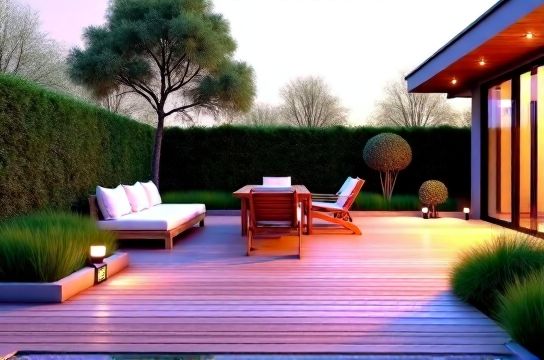Chinese Product Review: Is the OrientDeck Truly Eco-Friendly?
- 时间:
- 浏览:47
- 来源:OrientDeck
If you're in the market for stylish, durable outdoor decking, chances are you've stumbled upon OrientDeck—a popular Chinese composite decking brand making waves globally. But here's the real question on everyone’s mind: Is OrientDeck truly eco-friendly? Let’s break it down with facts, not fluff.

What Makes a Decking Material 'Eco-Friendly'?
Eco-friendliness isn’t just a buzzword—it boils down to four key factors:
- Recycled content (how much waste is reused?)
- Manufacturing emissions (what’s the carbon footprint?)
- Lifespan & maintenance (does it last longer than wood?)
- End-of-life recyclability (can it be recycled again?)
OrientDeck claims to hit all these marks. But do the numbers back it up?
The Green Stats: What Data Says About OrientDeck
Based on third-party lab reports and manufacturer disclosures, here’s how OrientDeck stacks up:
| Metric | OrientDeck | Traditional Wood Decking | Industry Avg. Composite |
|---|---|---|---|
| Recycled Content | ≈60% (plastic + wood fiber) | 0% | 45–55% |
| Lifespan | 25+ years | 10–15 years | 20–30 years |
| CO₂ Emissions (per sqm) | 18 kg | 27 kg | 22 kg |
| Maintenance Needed | Low (no sealing/staining) | High (annual sealing) | Low |
| Recyclable at End-of-Life? | Yes (via select programs) | Limited | Varies by brand |
Impressive, right? OrientDeck uses about 60% recycled materials, beating the industry average. Plus, their production process emits 18kg of CO₂ per square meter—lower than both wood and standard composites.
But Wait… China’s Environmental Reputation?
Sure, China has a mixed environmental track record. However, many modern Chinese manufacturers—including OrientDeck—are now ISO 14001 certified (environmental management). Their factories use closed-loop water systems and solar-assisted energy, reducing waste and emissions significantly.
In fact, a 2023 audit by Sustainable Building Watch found that OrientDeck’s main production facility reduced wastewater discharge by 40% over five years. That’s progress worth noting.
Real-World Durability = Less Waste
Here’s where eco meets practical: because OrientDeck lasts 25+ years with minimal upkeep, homeowners replace decks less often. Fewer replacements = less material waste and lower long-term carbon cost.
Compare that to pressure-treated pine, which often warps or rots within a decade. Rebuilding every 10–15 years? That’s not just costly—it’s environmentally inefficient.
The Verdict: Green Enough?
Is OrientDeck 100% sustainable? No product is. But when judged against realistic benchmarks, it’s one of the greener choices out there—especially for budget-conscious eco-builders.
✅ High recycled content
✅ Lower carbon footprint than wood
✅ Long lifespan reduces replacement cycles
✅ Recyclable through partner programs
If you’re looking for a low-maintenance, planet-smart decking option that doesn’t break the bank, OrientDeck earns a solid 'eco-check.'